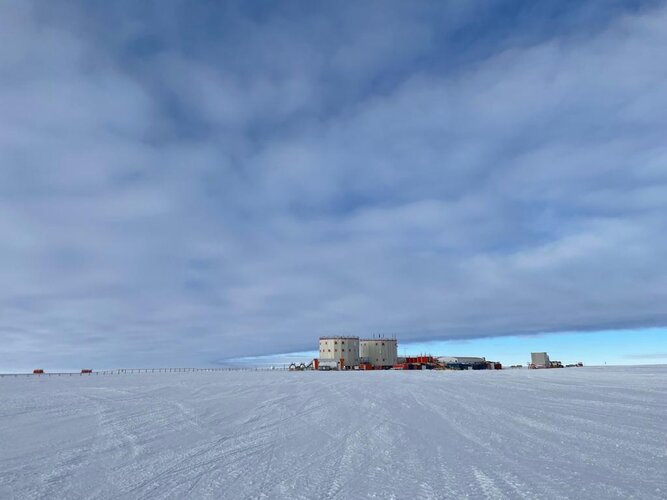What happened to those CubeSats that were launched with Artemis I?
Monday, 28 November 2022 17:21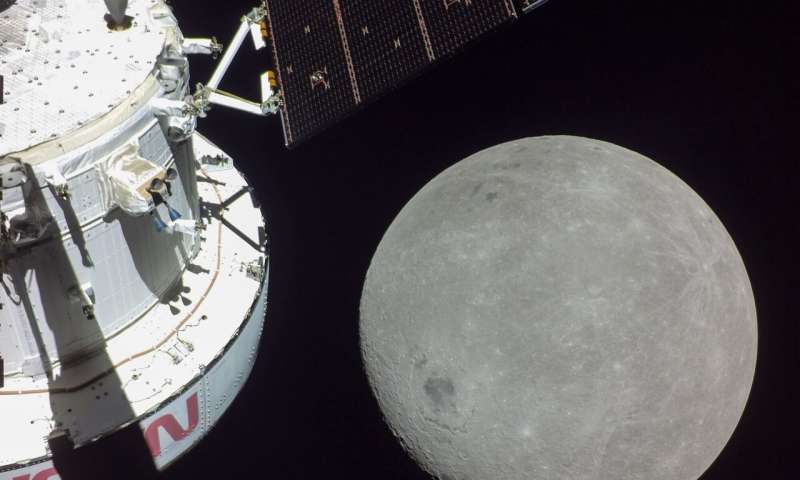
NASA made history on November 16 when the Artemis I mission took off from Launch Complex 39B at Cape Canaveral, Florida, on its way to the moon. This uncrewed mission is testing the capabilities of the Space Launch System (SLS) and Orion spacecraft in preparation for the long-awaited return to the moon in 2025 (the Artemis III mission).
3D radargram brings new focus to Mars' north polar cap
Monday, 28 November 2022 16:37
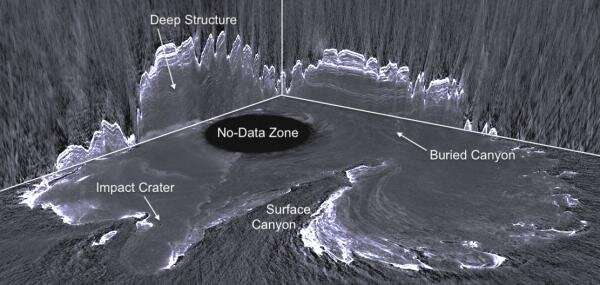
Airbus and ArianeGroup sign Ariane 6 transition batch contract in Spain
Monday, 28 November 2022 10:54 Airbus and ArianeGroup have signed a contract for the next transition batch of Ariane 6 large carbon fibre structures. The contract includes the manufacturing and supply of innovative, large, lightweight structures for the next fourteen Ariane 6 launchers, to be manufactured until 2025. The contract will support ArianeGroup's ramp up to full production rate by then.
Airbus builds up to fou
Airbus and ArianeGroup have signed a contract for the next transition batch of Ariane 6 large carbon fibre structures. The contract includes the manufacturing and supply of innovative, large, lightweight structures for the next fourteen Ariane 6 launchers, to be manufactured until 2025. The contract will support ArianeGroup's ramp up to full production rate by then.
Airbus builds up to fou Orion Star Trackers, Reaction Control Thrusters Tested: Artemis I Flight Day 12
Monday, 28 November 2022 10:54 On the 12th day of the Artemis I mission, team members conducted another planned test of the star trackers aboard Orion as it continued along a distant retrograde orbit of the Moon, and began another reaction control thruster flight test.
Engineers hope to characterize the alignment between the star trackers and the Orion inertial measurements units, both of which are part of the guidance,
On the 12th day of the Artemis I mission, team members conducted another planned test of the star trackers aboard Orion as it continued along a distant retrograde orbit of the Moon, and began another reaction control thruster flight test.
Engineers hope to characterize the alignment between the star trackers and the Orion inertial measurements units, both of which are part of the guidance, Flocks of assembler robots show potential for making larger structures
Monday, 28 November 2022 10:54 Researchers at MIT have made significant steps toward creating robots that could practically and economically assemble nearly anything, including things much larger than themselves, from vehicles to buildings to larger robots. The new work, from MIT's Center for Bits and Atoms (CBA), builds on years of research, including recent studies demonstrating that objects such as a deformable airplane wi
Researchers at MIT have made significant steps toward creating robots that could practically and economically assemble nearly anything, including things much larger than themselves, from vehicles to buildings to larger robots. The new work, from MIT's Center for Bits and Atoms (CBA), builds on years of research, including recent studies demonstrating that objects such as a deformable airplane wi Millennium Space Systems completes Missile Track Custody, Mission Payload Critical Design Review
Monday, 28 November 2022 10:54 Millennium Space Systems, a Boeing Company, completed a Critical Design Review for the U.S. Space Force's Space Systems Command's Missile Track Custody, or MTC, program mission payload.
"This initial CDR process marks 18 months of hard design work that is necessary to build the next generation of affordable OPIR sensors that can detect and maintain custody of emerging missile threats," sta
Millennium Space Systems, a Boeing Company, completed a Critical Design Review for the U.S. Space Force's Space Systems Command's Missile Track Custody, or MTC, program mission payload.
"This initial CDR process marks 18 months of hard design work that is necessary to build the next generation of affordable OPIR sensors that can detect and maintain custody of emerging missile threats," sta Space belongs to humanity, come share it with China
Monday, 28 November 2022 10:54 At the UN/China space exploration and innovation partnership conference on Monday, the China National Space Administration raised eight issues in the keynote speech delivered by its deputy director Wu Yanhua, which should inspire anybody who has concerns about China's space program.
China made clear, in no ambiguous terms, its basic principles about human space exploration, namely openness
At the UN/China space exploration and innovation partnership conference on Monday, the China National Space Administration raised eight issues in the keynote speech delivered by its deputy director Wu Yanhua, which should inspire anybody who has concerns about China's space program.
China made clear, in no ambiguous terms, its basic principles about human space exploration, namely openness Japan missile defense flight test successful
Monday, 28 November 2022 10:54 The Japan Maritime Self-Defense Force (JMSDF) and the United States Missile Defense Agency (MDA) announce the successful completion of a two-week missile defense event incorporating two live fire exercises.
The event, designated Japan Flight Test Mission-07 (JFTM-07) was held in cooperation with the U.S. Navy.
The first live fire event demonstrated a successful engagement of a Standa
The Japan Maritime Self-Defense Force (JMSDF) and the United States Missile Defense Agency (MDA) announce the successful completion of a two-week missile defense event incorporating two live fire exercises.
The event, designated Japan Flight Test Mission-07 (JFTM-07) was held in cooperation with the U.S. Navy.
The first live fire event demonstrated a successful engagement of a Standa China outlines pathway for lunar and deep space exploration
Monday, 28 November 2022 09:52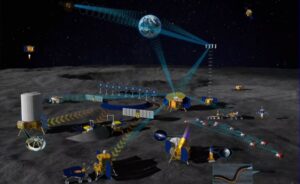
China has laid out its pathway for robotic and crewed lunar and deep space exploration, with a number of missions building towards a permanent moon base.
China rocket taking 3 to space station to blast off Tuesday
Monday, 28 November 2022 08:00
New weather satellite fully loaded
Monday, 28 November 2022 05:52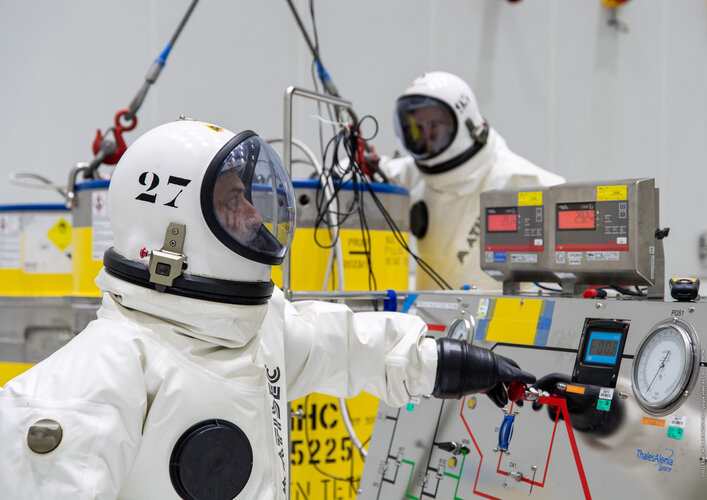
With liftoff now scheduled for 13 December, Europe’s first Meteosat Third Generation Imager (MTG-I1) satellite has been fuelled – a critical and extremely hazardous milestone on the road to launch. Once in geostationary orbit 36,000 km above the equator, this all-new weather satellite will provide state-of-the art observations of Earth’s atmosphere and realtime monitoring of lightning events, taking weather forecasting to the next level.
Locked and loaded
Monday, 28 November 2022 05:52
With liftoff now scheduled for 13 December, Europe’s first Meteosat Third Generation Imager (MTG-I1) satellite has been fuelled – a critical and extremely hazardous milestone on the road to launch. Once in geostationary orbit 36,000 km above the equator, this all-new weather satellite will provide state-of-the art observations of Earth’s atmosphere and realtime monitoring of lightning events, taking weather forecasting to the next level.
Millennium Space’s missile-warning satellite clears design review
Sunday, 27 November 2022 21:48
Millennium Space Systems announced Nov. 23 its proposed satellite design for a U.S. Space Force missile-warning constellation passed a critical review.
The post Millennium Space’s missile-warning satellite clears design review appeared first on SpaceNews.
Shaun the Sheep astronaut portrait
Sunday, 27 November 2022 12:35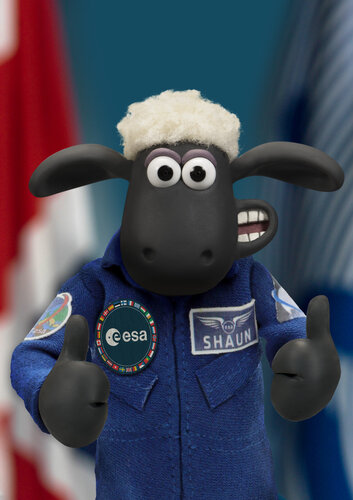 Image:
Shaun the Sheep astronaut portrait
Image:
Shaun the Sheep astronaut portrait 

